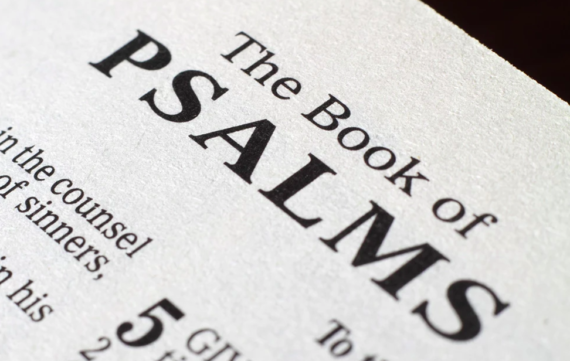Psalm 23
We come today to the best-known psalm, the best known chapter in the Bible, possibly the best known 118 words in world literature. Sadly, many who know the psalm are little better off for having known it.
It is unlikely that this brief article will contain anything new. Everything worth saying about this psalm has been said before. But perhaps a reminder of what we already know is in order.




Fifty years ago, I was given a copy of the book Sorrow and Joy. J.D. Thomas edited that book for the benefit of young preachers. He knew that young preachers often struggle knowing what to say at weddings and funerals. Brother Thomas sought sample wedding and funeral talks from many well-known preachers. Raymond Kelcy contributed one based on Psalm 23. I suspect that what is recorded here relies heavily on what Brother Kelcy wrote – perhaps to the point of plagiarism. But I don’t have the book here with me in Africa, so I cannot be sure.
Memorable and beautiful
The claims of this Psalm are memorable and beautiful.
This Psalm claims “I shall not want” for provision of needs. “The Lord is my shepherd; I shall not want. He makes me lie down in green pastures. He leads me beside still waters” (1-2).
We often confuse wants with needs. We speak of “starving” when we are merely hungry. We feel that we must have things that were unknown in previous generations. God does not promise to supply everything we might desire. But he does provide what we really need.
This psalm claims “I shall not want” for restoration and guidance. “He restores my soul. He leads me in paths of righteousness for his name’s sake” (3). What we most need is a right spiritual state, a restored soul. Our physical desires are of little importance in comparison. The paths of prosperity we do not need to tread. But we do need to be led in paths of righteousness. And that leading the Lord will grant.
This Psalm claims “I shall not want” for security, protection and shelter. “Even though I walk through the valley of the shadow of death, I will fear no evil, for you are with me; your rod and your staff, they comfort me. 5 You prepare a table before me in the presence of my enemies; you anoint my head with oil; my cup overflows. 6 Surely goodness and mercy shall follow me all the days of my life, and I shall dwell in the house of the Lord forever” (4-6).
We are not told that we will have no enemies. We are not promised that no shadow will fall across our path. We are not promised that we will always be protected from death. But the Lord’s assured presence and protection will be with us in the midst of enemies and even death.
The enabling claim
These claims are based upon another claim, “The Lord is my shepherd.” Those who cannot honestly claim the Lord as their shepherd cannot expect the blessings named above.
Please note that the claim is present tense. “The Lord is my shepherd.” For many he was their shepherd at some time in the past. Others hope that he will be their shepherd at some point in the future. But the one who will not want is the one who can honestly claim that the Lord is currently his shepherd.
The claim is also personal. “The Lord is my shepherd.” Not my family’s or my nation’s but mine.
The question we must all ask ourselves is clear. “Is he my shepherd today?”

